Welcome to the Launcells Parish Council Website
Launcells has been an interactive parish since 2013, offering online access to its residents and beyond.
We have just upgraded our website to comply with the new website regulations for 2020.
Please browse and let us know what you think and please tell us if there is anything that you feel the website could add to benefit users.
Thank you
Launcells Parish Council
Parish Council Meeting 05/01/26
Notice is given that Launcells Parish Council will be holding a parish council meeting in Launcells Parish Hall on Monday 5th January at 7.30pm.
If you would like to share your views on an agenda item, but are unable / uncomfortable attending, please email your comments to launcellspc@gmail.com no later than midday on Friday 2nd January.
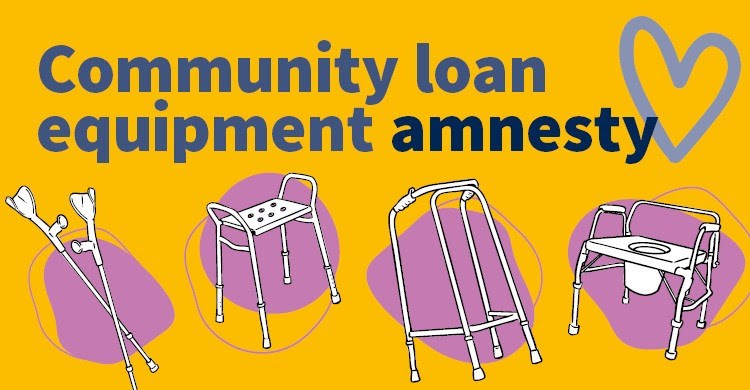
Share the care - don't leave it spare
We’re asking residents to help us return unused community loan equipment like crutches, walking frames, commodes and more.
These items are loaned by us and the NHS to help people recover at home. But many are never returned - sometimes they’re forgotten, or people don’t realise they’re on loan.
Returning unused equipment helps others in need and saves money for local services. It’s easy, and there are no fines - even if it’s old or damaged.
How to return equipment:
Visit the Medequip website for information on options for returning different types of equipment.
Drop it off at Medequip Roche Depot, Unit 12, Victoria Business Park, Roche, PL26 8LX (Monday-Friday, 8am-6pm).
Or call 01726 210477 or email cornwall@medequip-uk.com to arrange a free collection for larger items.

Enjoy free parking on Small Business Saturday
Enjoy free parking in Cornwall Council car parks and free Truro Park and Ride on Small Business Saturday on 6 December.
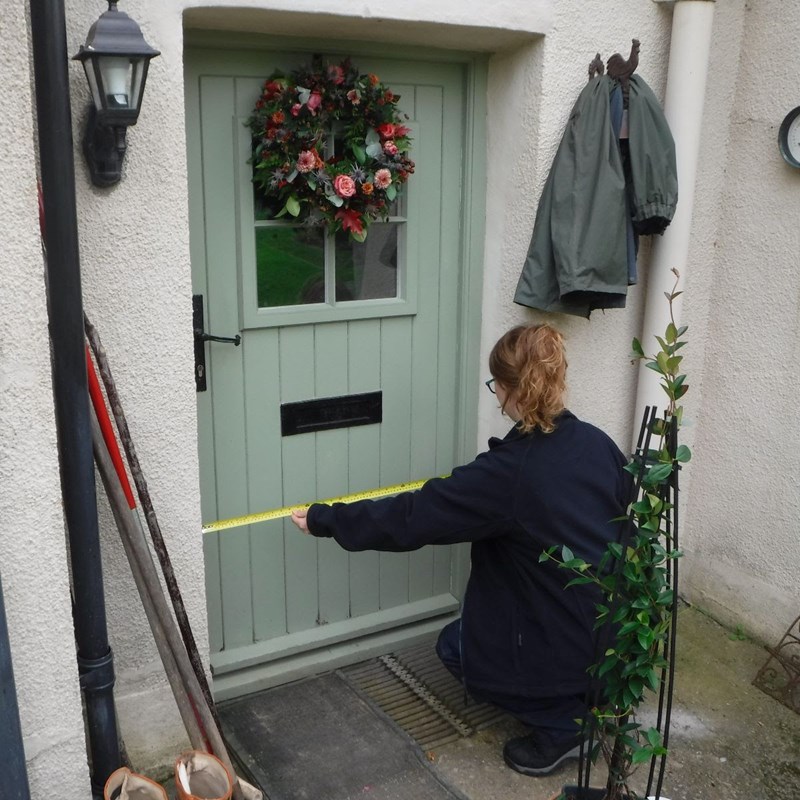
Protect your home from flooding
Flooding can be a real headache, causing damage and disruption. But with the right measures in place, you can greatly reduce the impact.
Our Property Flood Resilience Scheme is designed to help homeowners safeguard their properties against flooding.
You can access grants for a professional survey to identify the best solutions for your home. We’ll arrange the survey and installation for you, and help cover the cost of installing protective measures such as:
Flood gates
Flood doors
Self-closing air bricks
If you live in a flood-prone area, this could be the perfect opportunity to protect your home.
Click below to learn more and submit your Expression of Interest today.

Tell us your priorities for Cornwall
What actions could Cornwall Council take that would have the biggest positive impact on you and your family’s quality of life?
The Council’s new administration has set out their priorities for delivering real change on the issues that matter most to residents and communities across Cornwall:
Strong, safe, vibrant communities with more decent and affordable housing
A clean, green Cornwall with healthy rivers and seas
A resilient economy creating good growth and jobs
A caring place for families where children can build a bright future
Supporting people to live healthy and dignified lives
Connected, safe and reliable roads and transport
On Wednesday Cabinet agreed a draft council priorities plan for 2026 to 2030, outlining what our focus will be to achieve these priorities.
Tell us which actions are most important to you.
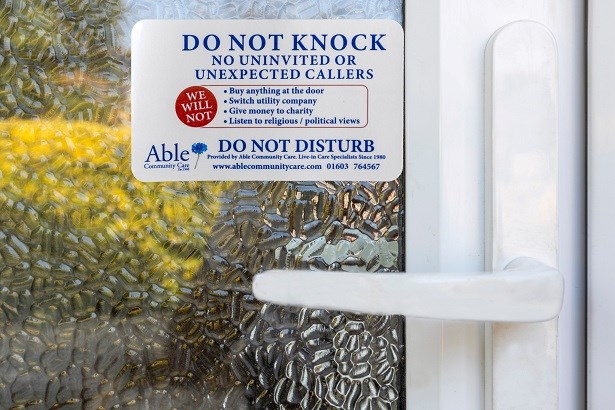
Help Keep an Older Person Safer in 2025
Did you know? While cold calling itself is allowed, traders must respect "No Cold Callers" notices - it's actually against the law if they don't! As a dedicated home care provider since 1980, we've made it our mission to help protect older and disabled people in our community. We're proud to have distributed over 250,000 of these protective stickers since 2019.
Do you know of someone who would like to receive one of these? If so, call us on 01603 764567

Help shape the future of health and care in Cornwall and the Isles of Scilly
People across Cornwall and the Isles of Scilly are being invited to share their views on the future of local health and care services as part of Caring Where It Matters – a new NHS engagement campaign.
The campaign, launched by NHS Cornwall and Isles of Scilly Integrated Care Board (ICB), asks residents, community groups and partners to help shape plans for delivering more services closer to home, by completing an online survey and speaking to NHS teams who will be out and about across local communities over the coming weeks.
Local people’s views will feed into the development of a new Cornwall and Isles of Scilly 5-year health and care plan, aligned to the NHS 10 Year Health Plan.
The survey is open until Monday 15 December 2025.

Newquay to London flights set to resume
Daily flights between Newquay and London are set to resume later this month after a short-term contract was agreed between Cornwall Council and the Cornish Skybus airline.
The service had been cancelled following the collapse of the previous operator, Eastern Airways, last week.
The route is operated under a Public Service Obligation, which sees Cornwall Council and the Department for Transport provide financial support if required to ensure the service is maintained.
Skybus will act as the interim provider providing daily flights between Cornwall Airport Newquay and London Gatwick from Sunday, 23 November, increasing to twice-daily services from mid-February.

Join our Standards Committee
We're looking for volunteers to be an Independent Person to support high standards of conduct in local government, giving an impartial view on complaints about councillor conduct.
It requires 10-15 days, or part days, per year of your time. A small allowance and travel and subsistence expenses are provided.
To be an Independent Person, you must be politically neutral and not have been a councillor, employee, or close relative of someone within Cornwall Council or any town or parish council in Cornwall in the last five years.
For more information or an application form, visit Cornwall Council’s website or email Simon Mansell MBE at simon.mansell@cornwall.gov.uk.

Do you know if you could claim pension credits?
Around a third of people over state pension age aren't claiming Pension Credit, and could be missing out on extra money each week.
The average weekly amount of Pension Credit is over £83.
A change in circumstances can make someone newly eligible for Pension Credit (for example, bereavement, a change in health or disability). So even if you’ve applied before and did not get it, it may be worth another look.
Qualifying for Pension Credit can mean help with other things like reduction in the amount of Council Tax they need to pay.
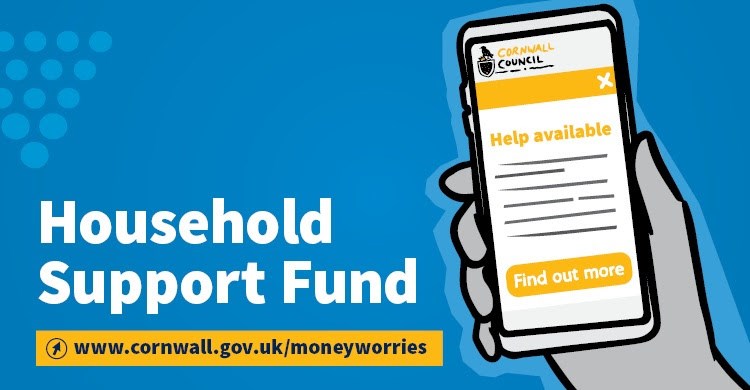
Changes to Household Support Fund
We're starting to send out Household Support Fund payments to eligible people in November.
If you receive Council Tax Support or help with care costs, you may get a £140 voucher. Families with children and pensioners are included. Vouchers will arrive by post and can be cashed at any Post Office. This year there are important changes meaning you'll need ID to cash your voucher at a Post Office.
If you can’t visit the Post Office, BACS payments are available. Full details will be in your letter. If you have any questions call us on 0300 1234 121 (option 3).

No fines. No fuss.
Cornwall’s Library Service is holding a book amnesty throughout November, giving readers the perfect chance to return any overdue books, no questions asked.
If you’ve got a library book hiding on your shelf, no matter how long it’s been, now’s the perfect time to bring it back.
Cornwall’s libraries do not fine borrowers for late returns and books issued by the Cornwall Library Service can be returned to any library in the Duchy.
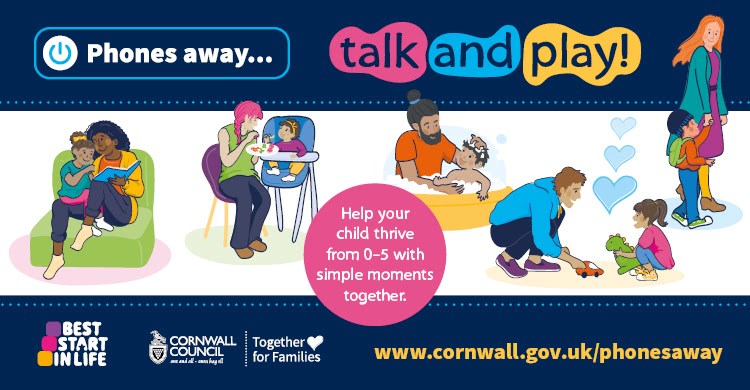
Phone's away: help your child thrive from 0-5
This week saw the launch of our new public health campaign “Phones Away – Talk and Play”, encouraging parents and carers to put down their phones and connect more with their children.
Backed by the UK Government’s Best Start in Life programme, the campaign is a partnership between Public Health Cornwall, Together for Families, and local health services.
A recent survey found that many parents in Cornwall and the Isles of Scilly worry about how often they use their phones around their children. Research shows that too much phone use can affect a child’s brain development, especially from birth to age five. The campaign promotes simple activities like talking, playing, and reading together, highlighting how everyday moments help children learn and grow.

Call for young people to join youth council
Do you know a young person who wants to help people in their community, change something that matters to them and their peers or help other young people to be heard and taken seriously?
Cornwall Youth Council is looking for young people aged 11 to 18 to stand for the next round of elections!
Find out more, read the candidate pack and sign up on the Let's Talk Cornwall website

1. PASSWORDS / 2FA / 2SV. Use Strong Passwords. Consider using - ThreeR@nd0mWord$ . Your password MUST contain at least 12 characters. Don’t use the same password for all your accounts. The strongest should be for your primary email account and this password should not be used for anything else. Where possible activate 2 Factor Authentication (2FA) / Two-Step verification (2SV). This generally involves sending a text to your mobile phone to double check that it is you carrying out a particular transaction. If you have difficulties remembering lots of passwords, consider using an on-line ‘password manager’. There are various free and paid for password managers available.
2. UPDATES and APPS. Always take operating system and software updates as soon as possible. Turn on your Anti-Virus / Firewall and keep them updated. Don’t use old operating systems that are no longer supported. These are particularly vulnerable to attack. Only download Apps from accredited Apps stores.
3. BACK-UPS. Regularly back-up your important data onto a removable hard drive. Consider keeping your back-ups off-site, in a fireproof / waterproof safe.
4. PHISHING / SOCIAL ENGINEERING. Never assume incoming emails are genuine. Even if you recognise the email address because email accounts can be ‘hacked’. Never believe voice calls and text messages are genuine, even if you recognise the phone number. Phone numbers can be ‘Spoofed’ (falsified). ALWAYS CONFIRM using the contact information you have obtained from your own records or from publicly available sources. Remember – Criminals will PHISH to obtain information from you. DON’T GIVE OUT ANY SENSITIVE INFORMATION TO INCOMING CALLERS. Send all email PHISHING attempts to report@phishing.gov.uk and send fake text messages onto 7726 (Spam). Call 159 to quickly be directed to your banks Fraud Team.
5. PRIVACY SETTINGS. Regularly check the privacy settings on your Social Media accounts and be careful what you post on social media. Do you really want everyone to know your house is empty when you are away on holiday?
6. WI-FI. Be cautious when using public Wi-Fi and don’t pass sensitive information, passwords, or bank account details over public Wi-Fi.
7. SECURING YOUR DEVICES. Ensure all your devices including your mobile phone(s) are password or PIN protected - Keep them ‘locked’ when not in use. Use Fingerprint or facial recognition if available. Only grant remote access to your device (computer / mobile phone / tablet), to someone you personally know and thoroughly trust. Never grant remote access to any incoming telephone callers. Try and avoid using publicly available USB re-charging points. These can be interfered with to compromise the security of your device (Juice Jacking). It is generally safer to charge devices from a standard electricity point or your own portable powerpack.
8. CREDIT CARDS. For added protection, please use a credit card for all your on-line transactions.
9. QR CODES. Carefully check QR codes before scanning them. Do they look genuine? Have they been tampered with? Can you do the transaction without using the QR code? Avoid Scanning from unknown / untrusted sources
10. INCOMING MESSAGES. Be wary of ALL incoming messages, including, voice calls, SMS text messages, emails and social media messages, even from persons you may know or email addresses you recognise. Remember accounts can be hacked and emails, social media addresses and phone numbers can be Spoofed (falsified). Both voice calls and videos from individuals know personally can be ‘DEEP FAKED’. Don’t rely on caller ID display. If you are concerned about an incoming call, hang up, call the caller back using another phone and the phone number YOU have obtained yourself from your own trusted sources. Never Assume, Never Believe, ALWAYS CONFIRM. Be particularly cautious of any requests you may get to change the details of a regular outgoing payment or to create a new payment.
11. Never share your passwords. Organisations including financial institutions, HMRC, the DVLA, the NHS, other Government bodies, and the Police will never ask for YOUR PIN, YOUR Passwords, YOUR personal / financial details. NEVER-EVER share those details. Any requests you get, claiming to come from such organisations WILL BE A SCAM!
12. Don’t Rush. Question Everything / Seek Advice / Never Assume, Never Believe, ALWAYS CONFIRM. Go to Have I Been Pwned: Check if your email has been compromised in a data breach to see if your email has been involved in a data-breach.
SOCIAL MEDIA PRIVACY & SECURITY SETTINGS
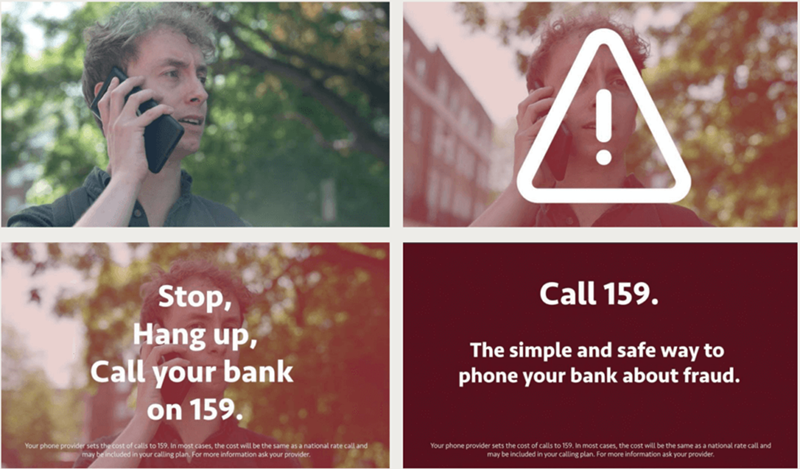

Recycle!
Rescue your recyclables from the bin so they can go on to enjoy a new lease of life.
Toothpaste tubes, trigger spray bottles, aluminium foil, shampoo bottles and yoghurt pots go in your red recycling bag.
Toilet roll tubes go in your orange bag, and glass bottles go in your black box.
Find out more about what you can recycle and how by searching our Recycling A-Z.

Have your say on living in a rural area
The Rural Services Network (RSN) has launched a landmark new research project to make sure the voices of rural communities are heard loud and clear in national policy.
The Delivering for All Research Project is a national survey designed to capture the everyday experiences, challenges and priorities of people living in rural England, from small towns and villages to hamlets and isolated communities. The survey, which takes just 8–10 minutes to complete, asks about key issues including housing, healthcare, transport, digital connectivity, planning, and environmental priorities.
Responses are anonymous, but will directly inform Government departments, Select Committees, and MPs representing rural constituencies. Following the survey, RSN will also be carrying out interviews, focus groups, and community case studies to build a powerful evidence base. This will feed into a major research report later this year, alongside policy briefings and community feedback reports.
The RSN would like as many communities as possible to take part to build a stronger case for fairer rural services.

Seatbelt covers to help motorists with communication needs
Devon and Cornwall Police are offering drivers and passengers with speech, language or communication needs free seatbelt covers to help make things easier after incidents on the road.
The covers contain a card inside which allows the user to add their name, age, address, medical conditions or other information about how they like to be communicated with.
Anyone who feels they may benefit from one can collect a cover from their nearest Police Enquiry Office.
Check where your nearest PEO is on the Devon and Cornwall Police website.

Apply for your child's school place for 2026
Parents and carers in Cornwall can now apply for school places for children who are starting primary school or moving up to secondary school in September 2026.
Please apply in good time to ensure your child has the best chance of being allocated a preferred school.

Your postal vote may need renewing
Did you apply for a postal vote before 31 October, 2023?
Postal voting is now only valid for a maximum of three years under new government rules. That means you’ll need to reapply by 31 January, 2026 to continue voting by post.
We’re contacting registered postal voters across Cornwall with information about the new three-year rule, so look out for a letter or email from us.
If you want to find out more about reapplying visit our website.

Low-income households to benefit from £4.5m Household Support Fund
Low-income households in Cornwall will once again receive payments to help with the ongoing cost of living crisis after we secured £4.5m from the Department for Work and Pensions (DWP), through the Household Support Fund (HSF).
Payments of £80 per person will be made automatically to those eligible, including pensioners receiving council tax support and vulnerable adults on a low income.
In a change to the way HSF funds are allocated, this latest round will see an £80 payment made to an additional 3,000 pensioners in receipt of council tax support – previously only those in receipt of pension credit received payments.
A payment of £80 per child will also be made to low-income households who claim council tax support.
The latest round of funding will run to 31 March 2025, and will provide urgent support for those most in need as living costs continue to rise.
Remember, you can report lots of things to us online like:
- missed waste collections
fly tipping
full litter bins
graffiti
broken street lights
potholes
abandoned vehicles
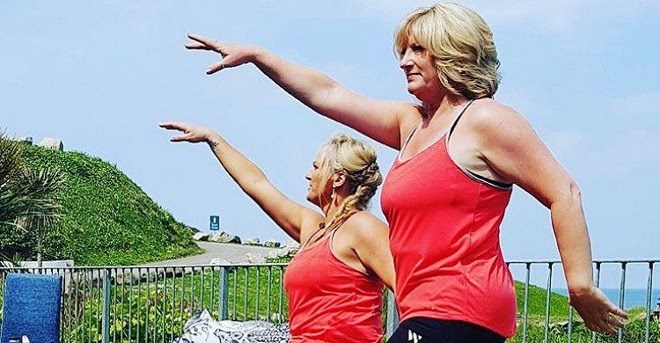
|
|
|
Learn First Aid Gestures
----------------------
Community Emergency Plan
The community emergency plan document can be found here
It was created in 2018 and distributed to all parish households - some details have changed but the general information is still relevant.
November 2020 -
Covid - 19 Directory amended pdf here
 Launcells Parish Defibrillators
Launcells Parish Defibrillators
The first defibrillator is located at Launcells Parish Hall in Grimscott - EX23 9LS
The second is It is located at the Red Post Inn, by the post box - EX23 9NW.
As before, should you need access to this "self-guiding" piece of equipment, just phone 999 and follow the instructions on the cabinet. You will then be given the access code to open it. The machine then tells you how to use it.
We would hope to arrange another set of training for the use of a defibrillator, once we return to normal, but in the meanwhile, attached is the note that was in the Parish Magazine a while back.